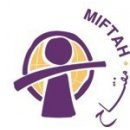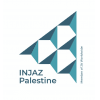طلب عرض فني ومالي للتعاقد مع باحث/ة لإعداد مسح "Mapping"- ال...
ترغب مؤسسة "مفتاح" ضمن مشروعها "تعزيز الفضاء المدني والمساءلة الاجتماعية في فلسطين" بالتعاون وبالشراكة مع مؤسسة أوكسفام، بالتعاقد مع باحث/ة لإعداد مسح "Mapping"- المعرفة حول الحقوق الرقمية في مؤسسات المجتمع المدني المختصة بقضايا حقوق الإنسان.
وعليه، نرجو من الراغبين/ات تزويدنا بالعرض الفني والمالي لإعداد المسح وفقاً للإطار المرجعي المرفق في موعد أقصاه يوم الأربعاء الموافق 04/09/2024 على البريد الإلكتروني: [email protected] حسب التالي:
العرض الفني بما يشمل:
- السيرة الذاتية ( السير الذاتية للفريق) مع تسليط الضوء على الخبرات السابقة في المجال وبما يعكس توفر الشروط المذكورة وخاصة الحقوق الرقمية والحيز الفلسطيني وحقوق الإنسان.
- خبرة في مجال المسح/البحث في الحقوق الرقمية.
- المنهجية والإطار الزمني.
- نموذج لدراسة أو تقرير سابق أعده المستشار في سياق مشابه لما هو مطلوب.
- تحديد لغة إعداد التقرير (علماً بأن هناك حاجة لبعض المخرجات باللغة الإنجليزية).
العرض المالي بعملة اليورو بما يشمل عدد أيام العمل وتكلفة اليوم الواحد شامل لضريبة الدخل حسب القانون الفلسطيني والبالغة 10%. وفي حال التقدم من مشتغل مرخص، يرجى تزويدنا بالسعر غير شامل ضريبة القيمة المضافة كون المشروع معفياً من الضريبة، بالإضافة إلى إرسال شهادة خصم مصدر سارية المفعول.
لمزيد من المعلومات أو الاستفسارات الرجاء الاتصال على هاتف المؤسسة رقم 2989490/1، أو على البريد الإلكتروني: [email protected]
Terms of Reference
Conducting a Mapping Survey - Digital Rights knowledge.
ReCIPE (2024)
In 2021, MIFTAH launched its digital and public diplomacy plan aiming to widen the outreach scope of global influencing in support of the Palestinian cause. This goes in line with MIFTAH’s mission to engage local and international public opinion and official circles on the Palestinian cause, as a platform for the dissemination of the Palestinian narrative. MIFTAH adopts the flow of information (dissemination of data) as a strategic advocacy tool at the national and international levels, relying on documentation of human rights violations and the analysis of the gendered impact of the Israeli occupation policies and practices on the Palestinian civilians in Occupied Palestine.
MIFTAH works within the framework of human rights mainly International Humanitarian Law, International Covenants of Human Rights, the International Human Rights Law, Rome Statute of the International Criminal Court, Geneva Convention, and the relevant UN resolutions capitalizing on its Consultative Status with the ECOSOC.
Since October 7th, 2023, during the continued Israeli genocide war on Gaza and the escalation of Israeli military raids on refugee camps in the West Bank, settlers' terrorist and violent attacks have targeted Palestinian villages and cities. These Israeli atrocities, war crimes, and violations have been publicly shared on a global level through social media and digital campaigns led mainly by youth, journalists, media producers, influencers, content creators, and human rights defenders in Palestine. These campaigns have been widely spread by global networks, solidarity movements, university students, and celebrities. This global action, geared via digital campaigning and advocacy, has enhanced public opinion to stand in solidarity with the Palestinians' right to self-determination and freedom.
During 2024 - 2026, MIFTAH is guiding actions towards enhancing the civic space through leading advocacy efforts to create vibrant and safe online spaces and improve digital rights mechanisms and policies that make governments and corporate actors accountable in addition to fostering equitable access to safe and secure online social and political activities for activists and members of Civil Society Organizations (CSOs).
In 2024, MIFTAH will conduct a study on internet access in the West Bank and Gaza followed by advocacy efforts. Concurrently with this study and as part of its ongoing efforts, MIFTAH is planning on carrying out a mapping of human rights CSOs digital capacities and digital rights knowledge. This Mapping aims to identify gaps and basic needs related to digital rights of small to middle sized CSOs working in the West Bank and Gaza with special focus on marginalized areas. Building on the findings of the mapping, a series of training sessions on digital rights will be implemented for non-governmental organizations working in the field of human rights.
Objective:
Assess and Map Digital Rights Capabilities: Identify and evaluate the digital rights knowledge, practices, and capacities of civil society organizations (CSOs) engaged in human rights work.
Scope of Work:
- Conducting Mapping Survey: This involves assessing knowledge and practices related to digital rights among civil society organizations working in the field of human rights in the West Bank (including Jerusalem) and Gaza Strip. This includes:
- Tool review and contextualization: Review and update an existing assessment tool to accurately reflect the current realities of the Palestinian context, particularly post-October 7th.
- Identification of target CSOs: Identify small to mid-sized CSOs focusing on human rights in the West Bank (including Jerusalem) and Gaza Strip, with special attention to those in marginalized areas.
- Survey Administration: Administer the survey both online and offline, depending on the accessibility and preferences of the target CSOs.
- Analyzing Data: Analyze the collected survey data to derive insights into the digital rights capabilities of the CSOs and provide recommendations.
- Developing recommendation matrix: Based on the survey analysis, develop recommendations that will form the basis for subsequent training sessions following the mapping survey (separate task). These recommendations should directly address the identified needs and gaps within the organizations and include:
- Summary of Digital Gaps: Provide a detailed summary of the digital gaps identified through the survey. This should include specific areas where CSOs are lacking in digital rights knowledge, practices, or infrastructure.
- Training Methods Matrix: Develop a matrix that links the identified digital gaps with appropriate training methods. This could include workshops, hands-on sessions, e-learning modules, peer-to-peer learning, and other relevant methods.
Expected Deliverables:
- Mapping Report: A detailed analysis of the knowledge and capacities of organizations regarding digital rights, based on the mapping survey.
- Recommendation matrix: Based on the survey analysis, develop recommendations that will form the basis for subsequent training sessions following the mapping survey.
Timeline
Task/Deliverable. Duration. Days of implementation
Mapping and Delivery of Initial Report. September – November 2024. 14
Final report after editing. 15 November 2024. 4
- Note: For those who have experience and are interested in the field of digital rights training, please provide a brief overview of that experience in the technical proposal and a work plan with main headings/outline related to the training material on digital rights. Additionally, please add a separate section to your financial proposal covering the training (cost per day).





















